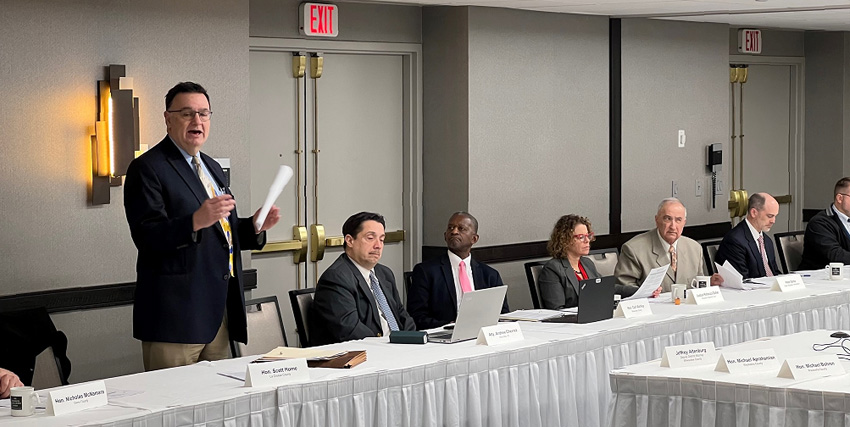In December 2021, the Planning and Policy Advisory Committee (PPAC) adopted the 2022-23 Critical Issues Report, which identifies priorities for the court system to focus on during the coming two-year period. The report was developed by the PPAC Planning Subcommittee, which reviewed online survey results, national research, and pandemic-related feedback from court system stakeholders to determine what topics should be highlighted as priorities.
More than 700 online responses were received during the 2021 Critical Issues survey process. Both court system and partner agency stakeholders who took the survey agreed that the highest-priority issues are mental health and use of technology. While both of these topics have been identified as critical issues in the past, the COVID-19 pandemic revealed that these areas, in particular, directly impact the court system’s ability to function effectively and efficiently. One focus area for 2022-23 centers on the continued implementation of technology, such as digital audio recording (DAR) for taking the court record, and equipment to enable remote proceedings. Efforts in the area of technology mirror sentiments captured through the survey, which indicate that the role of remote technology in the courtroom is expected to increase, even after the pandemic has ended.
More than 40-percent of survey respondents said that they plan to use Zoom or videoconferencing often (24-percent) or very often (18-percent) in the future. This is a dramatic shift from before to the pandemic, when only 14-pecent of respondents said they used videoconferencing often (4-percent) or very often (10-percent).
Another priority area identified in the report is mental health. The pandemic worsened the mental health of many court-involved individuals and exacerbated some difficulties with access to treatment and services. A large proportion of judges who took the Critical Issues survey identified mental health as the top issue impacting the court system.
A team of representatives from the Wisconsin court system, the state Department of Health Services, county human service agencies, mental health advocates, and law enforcement officers will attend a national summit on mental health this month. The seminar will explore strategies for working with state and local partners to improve the availability of mental health support and treatment services throughout the state. (Look for a report on the summit in a future issue of Third Branch eNews).
The full Critical Issues Report (PDF) is available on the PPAC page of the Wisconsin court system’s website.


